This year we took Bootcamp to Wellington, holding it at the Rydges Hotel on September 14 and 15, with the Fellowship ceremony and dinner on the Saturday evening.
The Saturday sessions got underway after a wonderful opening Mihi Whakatau from the local iwi. The first three sessions followed the previous Bootcamp format, featuring groups of 4 talks, 15 minutes in duration which focused on an important urgent care take-home point. These were followed by a Q+A opportunity. There was good variety of talks this year delivered by a mix of Urgent Care Fellows, Nurse Practitioners and registrars and the audience contributed with insightful and intelligent questions. Sadly, owing to an aircraft engine issue on the runway at Auckland Airport, Dr Moushumi Das, a Dermatologist, was unable to attend and present in person, but through the wonders of Zoom, she was still able to talk us through urgent dermatology.
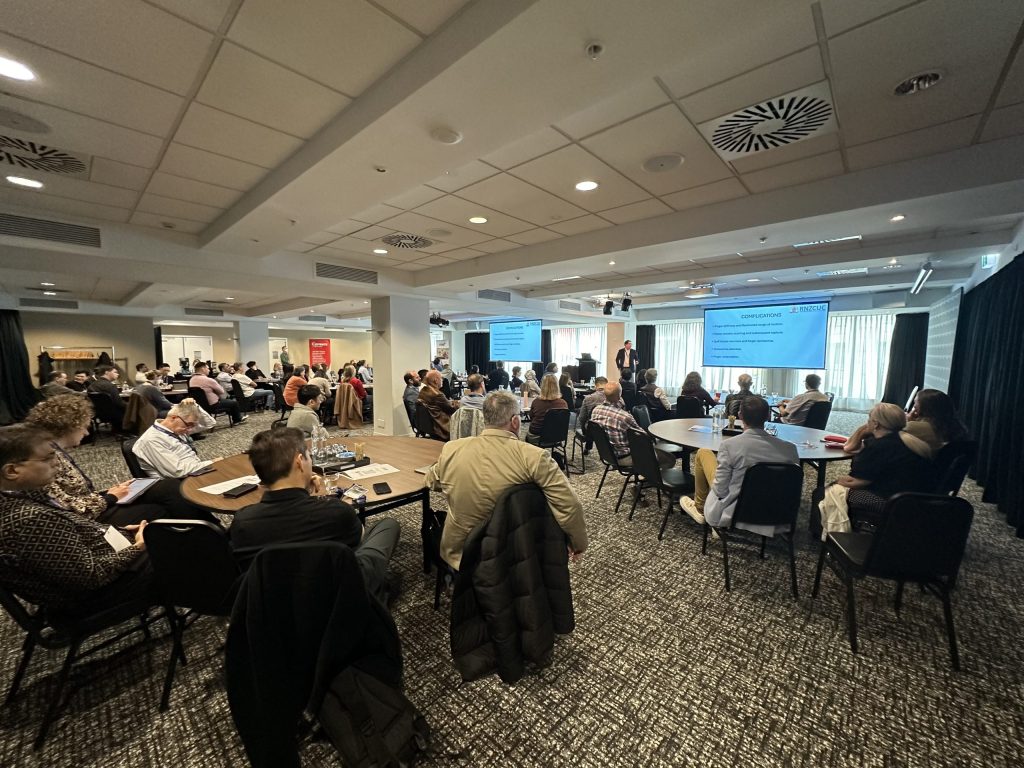
After an excellent lunch, we heard from Dr Joshua Russell, Editor-in-Chief of the Journal of Urgent Care Medicine who delivered a keynote speech that looked at the differences, and similarities, between urgent care in New Zealand and the USA. He also discussed the future of urgent care, how our speciality must adapt to new technologies and how research conducted in urgent care is vital for the speciality to grow. He also announced the JUCM Fellowship in Medical Writing and Editing, available to NZ based clinicians. It was great to get an international perspective and to share stories, ideas and teachings throughout the weekend. Our thanks to Josh for making the journey over to New Zealand and for contributing so wholeheartedly.
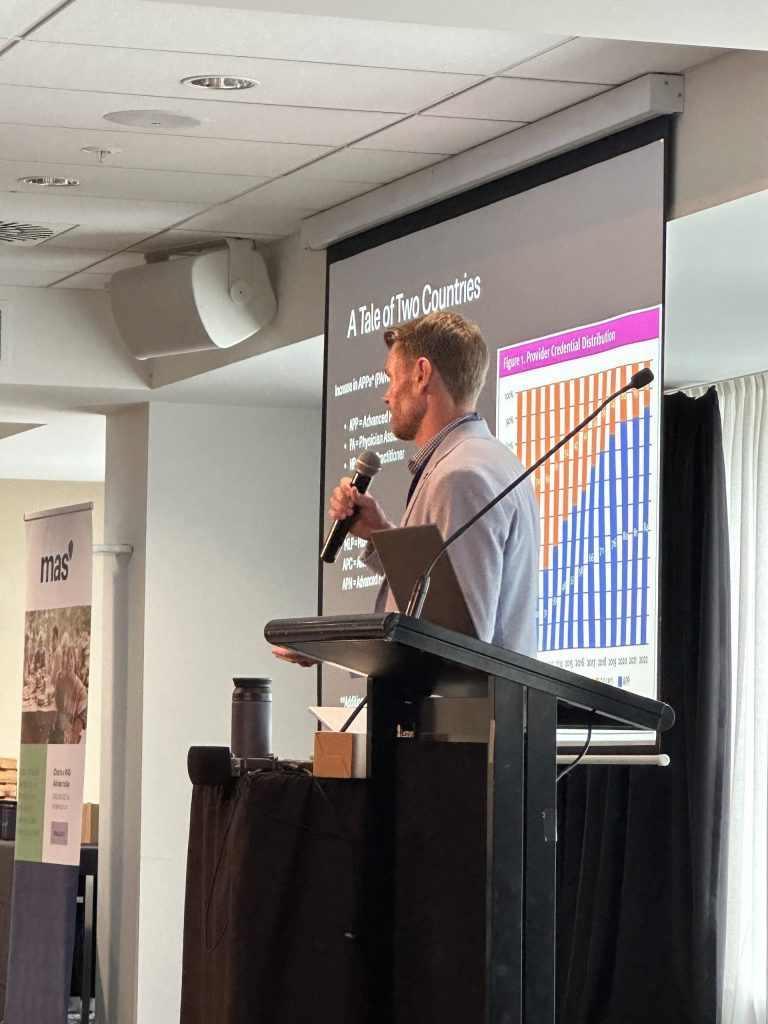
Following this, there was an interactive session that looked to explore the important topic of Supervision in Urgent Care. Led by Dr Rain Lamdin, who teaches on the Clinical Supervision paper at the University of Auckland, the session utilised Mentimeter to discuss aspects of supervision within the urgent care setting. Rain reflected on comments from the audience by applying evidence from the literature and the session highlighted some of the barriers to quality supervision within our healthcare setting. Following a tea break, the afternoon concluded with one more session featuring 4, fifteen-minute talks and a final Q+A. Throughout the day, our Sponsors were on hand to field questions and talk about the groups they represented. Our thanks to our Main Sponsor, Tamaki Health, and to the MAS and Enovis, all of whom had members of their team with us throughout the weekend.
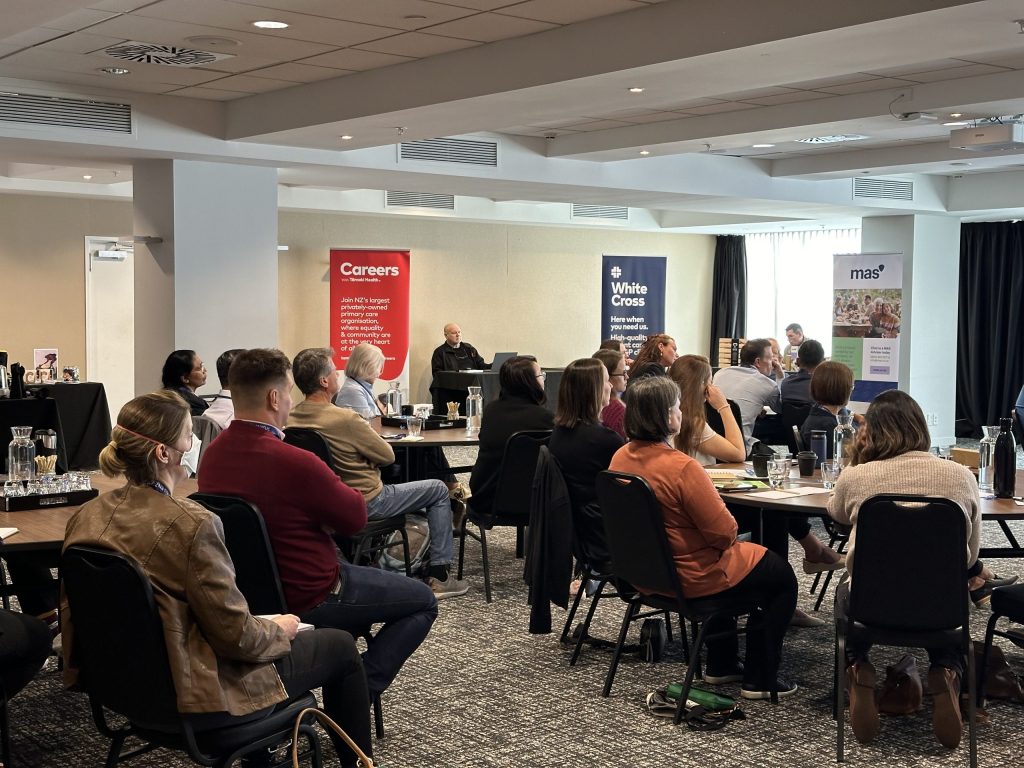
Following the educational activities of the day, there was just enough time for everyone to put on their glad rags and reconvene for drinks and canapes to join friends and family as people who attained Fellowship in the last 2 years were presented with their certificates at the Fellowship ceremony. This was a wonderful occasion to come together and celebrate the achievements of the newest cohort of urgent care physicians and was followed by a delicious dinner.
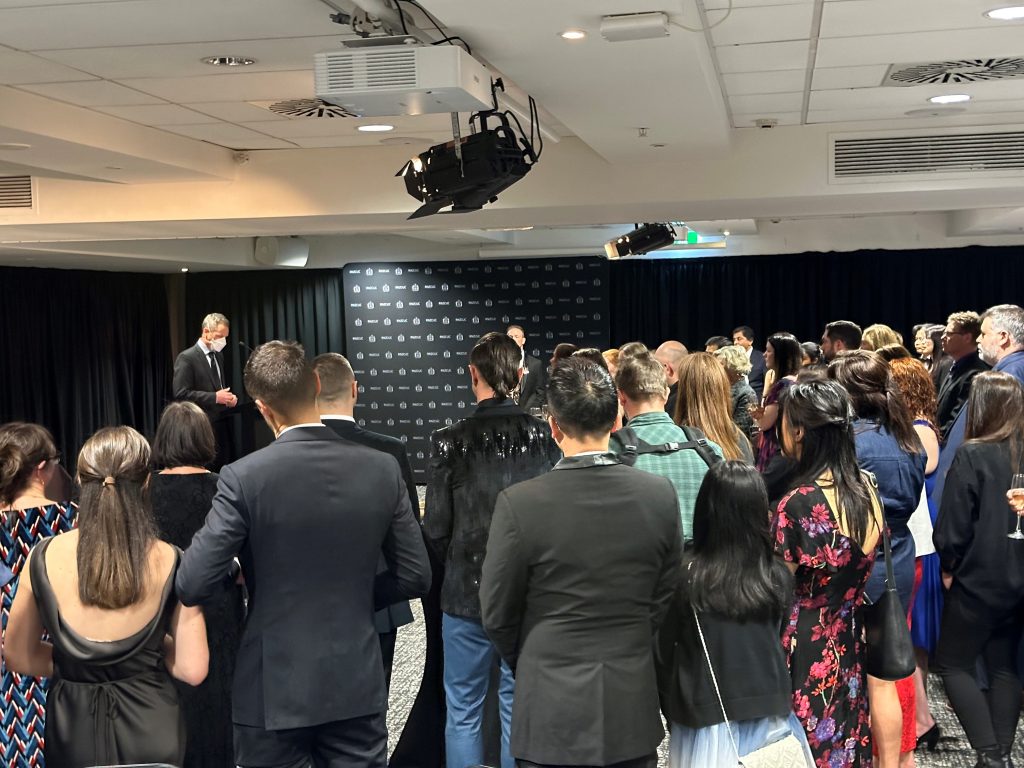
With some feeling the effects of an evening of mild excess, Sunday kicked off with a myth-busting session with Dr Laura Hamill and Dr Dinesh Deonarain. They discussed some of the evidence that suggests some of the long-held beliefs and practices in urgent care should be consigned to the waste paper basket. Accompanied by breakfast, this session blew away any remnants of the previous night’s frivolities and generated much discussion and reflection on current practice.
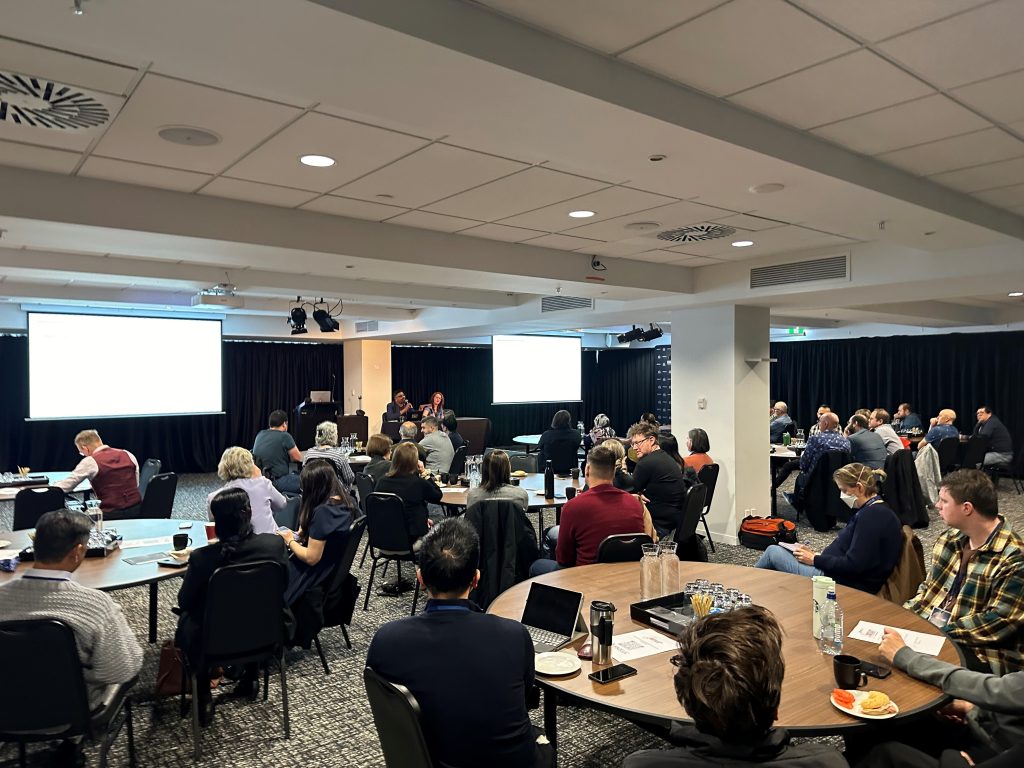
The remainder of Sunday featured discussions that looked to feed into the overall College strategy. To start these sessions off, General Manager Adrian Metcalfe, joined by Matt Wright from the College’s Strategy Working Group, discussed the College Strategy 2030 and a vision for the next 5 years.
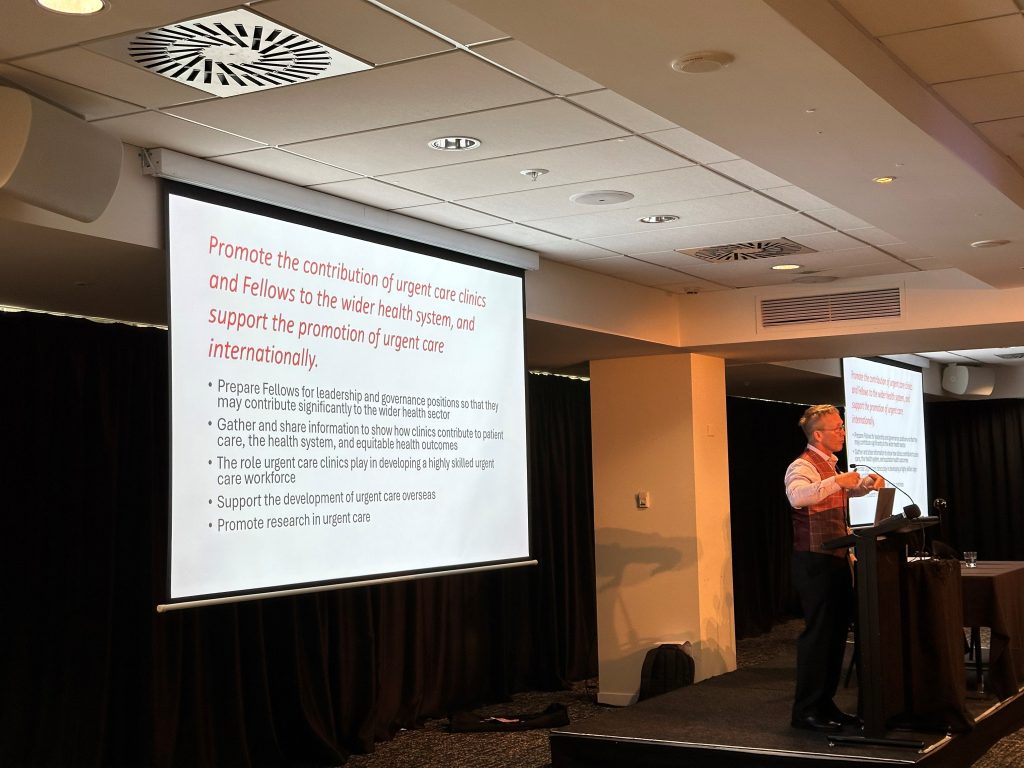
The next discussion focused on how urgent care can deliver on providing culturally safe and equitable healthcare. For this session, we were joined remotely by Dr Greg Russell, who works in the Hauora Maori department at Te Whatu Ora and he presented recent figures that showed the utilisation of urgent care amongst various groups. Also joining this session remotely from the Bay of Plenty was Nurse Practitioner Joanna Hart, who helps work on a volunteer lead outreach bus that provides urgent healthcare to underserved parts of the Bay of Plenty. Finally, joining the panel in the room was Dr Samantha Murton, President of RNZCGP and Chair of the Council of Medical Colleges (CMC), who added a GP perspective as well as experiences from CMC.
The next discussion featured Dr Josh Russell again from the JUCM and discussed what, in an ideal world, would we want to run the perfect urgent care health system. While discussions started by looking at additional diagnostics and access to higher imaging, the discussion eventually settled on the fact that urgent care needs doctors, nurse practitioners and nurses, trained in urgent care and working in properly staffed urgent care clinics. Without this highly skilled workforce in appropriate numbers, urgent care delivery will always be compromised.
The final discussion looked to focus on ways that urgent care clinics, and clinicians, can positively impact the community and by extension, what would the community lose if we were not doing the work that we do.
Video recordings of the weekend will be released in due course.
Reflections on the weekend
The Bootcamp and Fellowship Ceremony weekend provided an opportunity for the urgent care community to gather in the Capital and learn from one another, celebrate achievements, plan for the future, network and build relationships and, above all, have fun. As a relatively new and developing speciality, this type of connection is vitally important and it was heartening to see so many people make the effort to join us in Wellington and to share in a collective pride in the work that urgent care does around the country, and indeed the world. To hear the perspectives of Dr Joshua Russell from the USA added an international flavour to the weekend and built relationships that will span the oceans and further develop urgent care in the future.
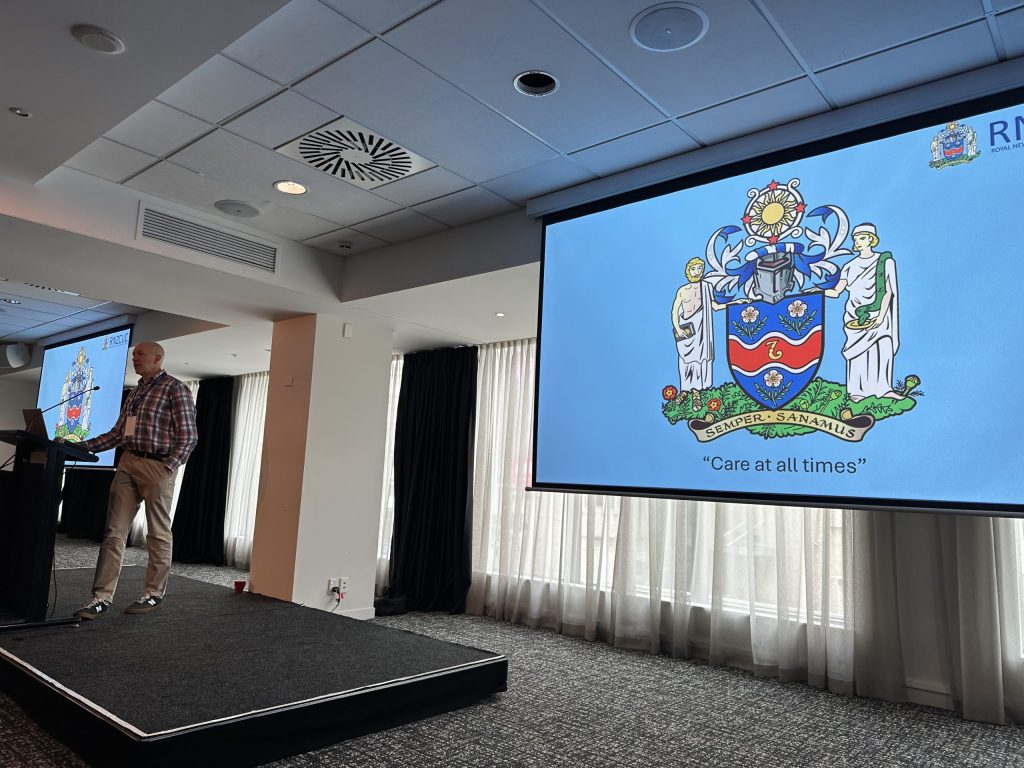
I would like to thank all the speakers who volunteered to talk, without whom the weekend would not have happened. All the presentations this year were engaging, educational, and entertaining and all fulfilled the brief. A special thanks to Hilary Burbidge and Dinesh Deonarain who also assisted in planning and logistics.
The Office team of Adrian Metcalfe, Alex Cristea, Dave Sorrell and Kushani Dewanarayana worked tirelessly in both the run-up to the event and throughout the weekend. Thank you for all your work.
The Rydges Hotel team deserve our thanks for all they did to make the weekend run smoothly.
Finally, our main Sponsor, Tamaki Health, has always supported our Bootcamp events and we are grateful for that ongoing support. Thanks also to Enovis, MAS and the MPS for their support.
We will be doing this all again in 2026, which coincides with the 25th anniversary of the recognition of urgent care as an independent speciality in New Zealand. You should therefore expect a bigger Bootcamp weekend that looks to put on something special to mark this milestone. I hope to see as many of you as possible there to celebrate along with us, as well as to continue your lifelong learning as an urgent care physician. A required characteristic of being a clinician, especially an urgent care clinician, is that we remain inquisitive and always ask questions of ourselves, those around us and the system in which we work. I hope that our Bootcamp weekends provide an enjoyable way to engage with CPD and to allow you to ask questions and be inquisitive. Coinciding with our Bootcamp weekend in Wellington was a Doctor WHO exhibit in the convention centre. One of the quotes from The Doctor, shown to you as you went in, highlighted to me the need for us to maintain an ongoing and everlasting sense of inquisitiveness and exploration as urgent care clinicians.
I look forward to seeing you all in 2026
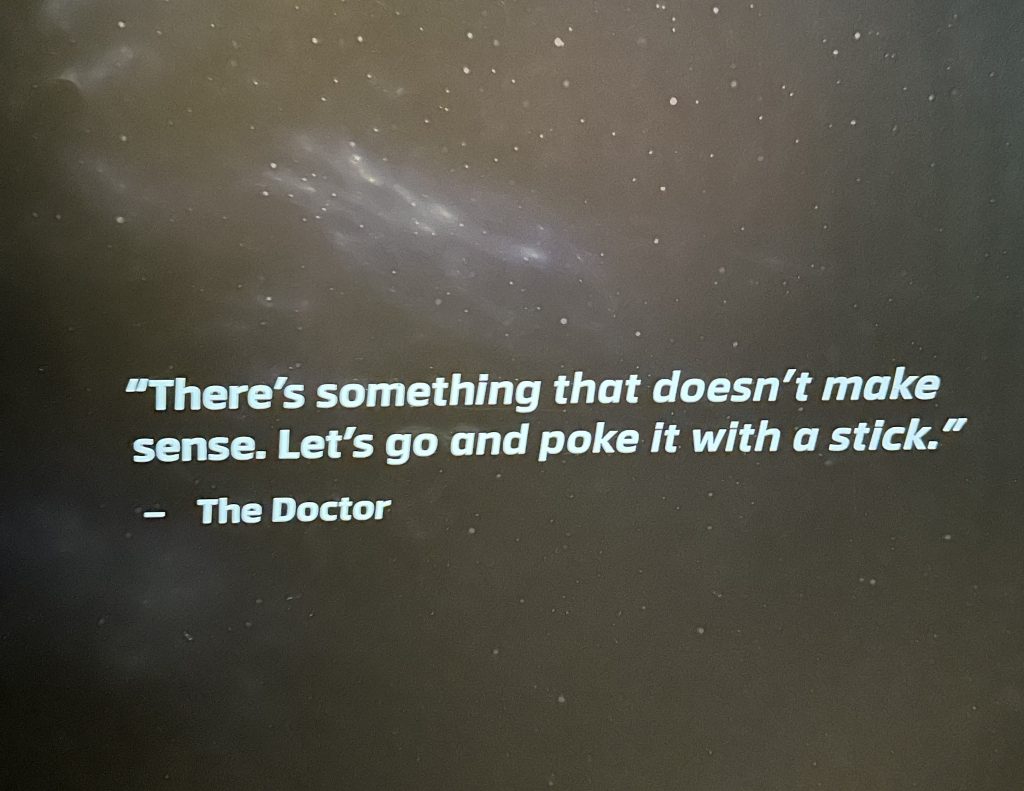
Guy Melrose, October 2024
